The Lab has several senior research affiliates and a team of students and visiting scholars.
In the Spring term of 2009, TCLab hosted post-doctoral affiliate Dr. Luciana Pereira from the Polytechnic School at the University of Sao Paulo, Brazil, and doctoral affiliate Neil Lee from the London School of Economics, UK.
Senior Research Affiliates:
Shyama V. Ramani completed her B.A. (Honours) in Economics at the University of Delhi and her M.A. in Economics at the Jawaharlal Nehru University in New Delhi. She obtained her Ph.D. in Economics at Cornell University, USA, with the Andrew D. White Fellowship in 1989. She is currently a “Chargée de recherche” or Associate Professor in the Economics Department of INRA (National Institute of Agricultural Research) and a research associate of the Ecole Polytechnique, France. Her current research themes include: risks and benefits of genetically modified varieties, TRIPS and incentives for technology transfer, evolution of hi-tech sectors (biotech, nanotech) in developing countries, technology and sustainable development. Her fields of specialization are: Economics of Innovation, Development Economics and Applied Game Theory. Professor Ramani has published 31 articles in economics, management science, sociology and biotechnology journals and 8 book chapters. She is the coordinator of the Franco-Indian Reconstruction Project after the Tsunami. |
 |
Beatriz de Castro Fialho is an economist, and holds a D.Sc. in Innovation and Organization from the Federal University of Rio de Janeiro. She has been working on issues related to the life sciences industries for the last 7 years, with an emphasis on technology and industrial policies for developing countries. She is currently Chief of Planning and Organization at Bio-Manguinhos/Fiocruz, a Brazilian public technology institute. In the last years she has been in charge of designing and implementing project management and portfolio analysis tools. More recently she has been in charge of designing and implementing strategic planning, balanced scorecard, budget planning, and restructuring oforganizational structure. She has collaborated with Prof. Srinivas on issues in the life science industries in India and Brazil, and related questions of technology, industrial and development policies. |
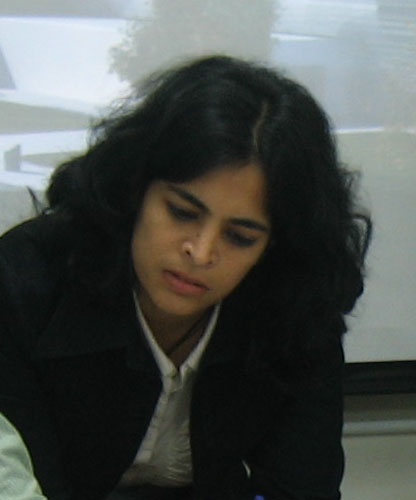 |
Anjali Ganapathy is the founder and principal of Bollamma Lewis, an international architectural design firm that is engaged in issues of aesthetics and sustainability. Her Indian work under the umbrella of Bollamma Lewis, is geared towards topics at the intersection of environmental sustainability and technical issues in the construction and architectural sectors. She is interested in issues such as rain water harvesting and solar heating in understanding how issues of design, materials use and technical standards are shaping urban sustainability within the residential construction arena. Based out of Boston, Bollamma Lewis has built projects across the United States and India. Her most recent assignment has been as full time consultant and project manager at Khan Global, an architecture company that handles large scale institutional and civic interventions in the United States, Saudi Arabia, Australia and India. In conjunction with her practice, she has been an Adjunct Faculty at the University of Minnesota where her design studio curriculum very much paralleled her interest in bringing together aesthetics and sustainability. |
Saeed Parto’s academic and consultancy work span a wide array of areas including the analysis of environmental policy at the organizational and regional scales (Canada), waste management (the Netherlands and the United Kingdom, Afghanistan), energy policy (Afghanistan), transitions toward sustainability through technological change (Europe and Japan), institutional capacity building through development aid programmes (India, Nigeria, and Afghanistan), regional integration (Turkey and the European Union), industrial greening (Canada), and industrial clustering (South Africa, Egypt, and the Canadian Maritimes). He has carried out research, published, and lectured extensively on these topics to an audience that has included undergraduate and graduate students, operations laypersons, NGOs, and private and public sector decision makers. Dr. Parto holds a B.A. in Economics (University of Central England), MES in Environment and Resources Studies (University of Waterloo), and PhD in Human Geography (University of Waterloo). The two key questions that have guided Dr. Parto’s academic and non-academic work over the last 10 or so years are:
In his analysis he focuses on the modes of governance and the formal and informal institutions through which governance is exercised, emphasizing the links between governance and policymaking at different jurisdictional and territorial scales. In this approach institutions are not treated as “given” but as reflections of learning by individuals and organizations. However, once established, institutions shape interaction, learning, and thus the direction of change with significant implications for policy or decision implementation. It is through this dialectical relationship that he introduces students of urban planning, environmental and natural resource management, regional economics, and policy and government studies to the rich institutionalist literatures in human geography, sociology, economics and political science. Saeed Parto is currently Senior Researcher (Political Economy and Governance) at the Afghanistan Research and Evaluation Unit (AREU) based in Kabul, Afghanistan. At AREU he manages the research programmes on national energy policy, urban sanitation and waste management, and private sector development. He is also a visiting lecturer at the Faculty of Arts and Social Sciences, Maastricht University where he teaches the graduate module “An Introduction to the Economics of Innovation, Technical Change, and Institutions”. |
Dr. Zeljka Kozul-Wright, a Croatian national, is an economist working in United Nations Conference on Trade and Development, UNCTAD's Division for Africa, the Least Developed Countries and Special Programmes in Geneva, where she is primarily involved in the preparation of UNCTAD's flagship publication - The Least Developed Countries Report, articulating and elaborating the key issues of concern to these countries emanating from accelerating globalization of trade and capital flows. She specializes in issues related to economic growth and development in low income economies, particularly on technological development, industrial organization and industrial policy in the process of structural transformation towards a knowledge economy. She has published numerous articles on these topics, both inside and outside the UN and has been advising numerous governments on such issues for almost 20 years. Additionally, she has worked closely with national policy makers, donors, other international organizations and the international development community at large on issues of concern to the world's poorest countries. She holds a MA and PhD in Economics from the University of Cambridge, England, a MA from Johns Hopkins University and a BA from Barnard College, Columbia University. Since 1992, she has worked at DESA, United Nations, in New York. Prior to working with the UN, she was an Assistant Professor of Economics at the University of Zagreb, Croatia, where she taught micro economic theory. Over the last decade, Ms. Kozul-Wright has also specialized in the economics of cultural and creative industries in developing countries. She has coordinated several research projects on the economic potential of these industries in many developing countries. She has published articles in the area of copyrights, music and culture, technology and development as well as industrial policy in transition economies. She has recently co-edited a book on Creative Industries and Developing Countries - Voice, Choice and Economic Growth (Routledge, 2007). Dr. Kozul-Wright is married and has two children. |
Postdoctoral Research Affiliates:
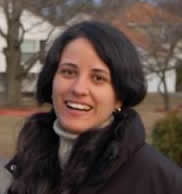 |
Luciana Pereira is Assistant Professor of Innovation Economics at UFABC, Brazil, collaborator on the TCLab Brazil-India Technology, Employment and Regional Inequality (TERI) Project, and a Senior Research Affiliate with TCLab. Dr. Pereira received a PhD and a MS in Engineering (Labor, Technology, and Organization Program) from Polytechnic School at University of Sao Paulo (USP), and a BA in Economics from Sao Paulo State University (UNESP). Outside Brazil, she was a visiting doctoral student at MIT in 2005-2006. Her research projects have been funded by the Brazilian Council for Scientific and Technological Development (CNPq), the Coordination for the Improvement of Higher Education Personnel (CAPES), and São Paulo Research Foundation (FAPESP) |
Visiting Doctoral Researchers:
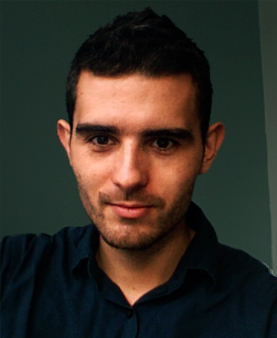 |
Neil Lee is a Visiting Doctoral Scholar at TCLab. Neil is working on his PhD in economic geography at the London School of Economics. His thesis investigates the impact of industrial change on patterns of inequality in European cities and regions. He has a BSc in Geography from University College London, and Masters degrees in Local Economic Development and Research Methods from the LSE. His research interests include technological change, urban growth, labour markets and poverty and inequality. Neil also works as a Senior Researcher at The Work Foundation, a London based research and advocacy organisation where he focuses on the changing economy and urban labour markets. He has published research reports on these issues for clients including the British Government and the OECD. Previously, he has worked for a community development consultancy in East London and on education projects in Lebanon. He can be reached at [email protected]. Neil Lee has recently presented work on innovation and inequality at the conference: "Technical Change: History, Economics and Policy. A Conference in Honour of Nick von Tunzelmann" at the Science Policy Research Unit, University of Sussex, March 29th, http://www.dime-eu.org/nick-von-tunzelmann and will be presenting on Ethnic Diversity and Innovation in London's firms at the Association of American Geographers Annual Meeting in Washington on the 14th to 19th of April 2010.
. |
Graduate Research Affiliates:
 |
Thomas Bassett is currently enrolled in the Masters Program for Urban Planning at Columbia University. His undergraduate work focused on Brazilian colonial slave society and its connection to contemporary Brazilian race issues. Upon graduation, he moved to São Paulo, Brazil, where he taught English for two years. Living in the South American megalopolis, he was fascinated with the urban issues of the city. His interests lie in socio-spatial inequality and what barriers (physical and perceived) exist in society to social and economic mobility. He would like to eventually work in international infrastructure development in the Lusophone world. |
 |
Manmeet Bindra is a researcher for the Service Employees International Union Local 32BJ in New York City. She graduated with a B.A. in Anthropology and History from Barnard College, Columbia University, and has worked with development and human rights organizations in New York, Cape Town and India. Most recently, she spent a year and a half working as a coordinator with a Bangalore, India-based economic development organization called LabourNet, which connects informal-sector construction workers to employers, social welfare benefits, financial services and training. Prior to that, she was a Third Millennium Human Rights Fellow; as a fellow, she helped start an income-generation project in Cape Town and she researched nutrition, livelihoods and HIV/AIDS in India. During college, Manmeet was involved in local immigrant labor activism and worked as a policy research associate on a study called "Unregulated Work in the Global City: Employment and Labor Law Violations in New York City" with the Economic Justice Project of the Brennan Center for Justice. She is interested in economic justice and the labor rights of workers in nonstandard employment. (contact: [email protected]) |
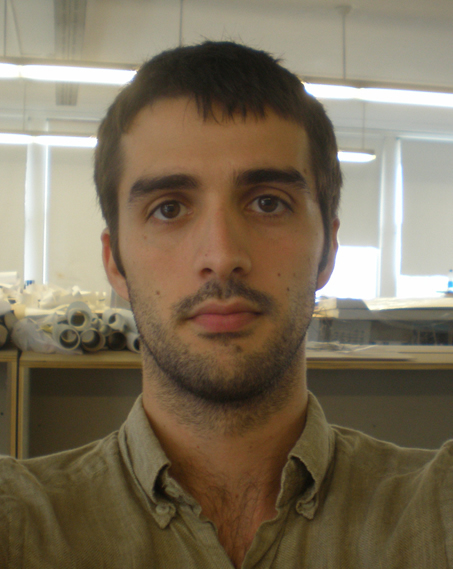 |
Alejandro received his Degree in Architecture at the University of Seville (Spain). He is currently in his last year for MA in Philosophy at the University of Seville and the Advanced Architectural Design MSc Program at Columbia University. During the academic year 2008/09 he will perform research on the Design of the Githurai Market in Ruiru (Kenya) at the Advanced Architectural Research Program, with the advice of Richard Plunz and Elliott Sclar at the Earth Institute. His interests lie at the connections and disjunctions between practices and theories of Architecture as well as between research and methodologies. These interests have been developed from various experiences: as a foreign exchange student at the Architecture School in Nurnberg (Germany); as intern for the Renovation of the Audiovisual Research Center of Cambodia at the French Embassy at Phnom Penh; as a partner in the project about Social Awareness and Tourism in Nicaragua, with the University of Seville and the NGO “Decco”, and through his practice in Spain. He has received awards in the “Los Merinales” and “DETEA” Architectural Competitions and has published projects and essays in Future Architectures Spain, Factotum Magazine and in several academic publications. In addition to his affiliation with TCLab Lab, he is a Research Assistant at the Geospatial Information Design Lab at Columbia University, where he explores the spatial potential of physical and social databases. He hopes to merge his various aims into a body of knowledge that may frame theory into a reversible circulation of practice. He can be reached at [email protected] |
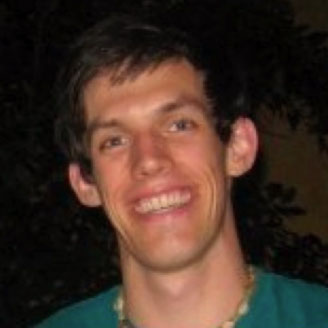 |
Kyle Gerry is a senior in Columbia College. He is majoring in economics and political science, and also studies dance. Some of his main interests are agricultural policies in developing countries, the democratic formation process in Brazil, and the role of the physical body in the production process in the economy. Currently, he is working on a paper comparing the central labor union to the Landless Worker’s Movement (MST) in Brazil. Some of his past research has focused on the history and political economy of the cacao bean and chocolate. He looks forward to learning more about India through working with the TCLab. |
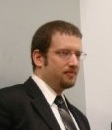 |
Michael Kolber is a Masters of Science student in Urban Planning at Columbia. His interests include the role of urban planning in humanitarian relief, improving quality of life in slums, and regional planning in the developing world. Mike previously served as a Peace Corps Volunteer in Burkina Faso, working with a regional credit union and doing outreach with local women’s groups. He has an undergraduate degree in economics, a strong background in environmental studies, and has studied in places as far ranging as Canada, Egypt, and Argentina. |
 |
Sophia Lalani is currently pursuing a Masters in Urban Planning at Columbia University. Prior to this, she received her B.A in International Studies and Spanish from Vanderbilt University in Nashville, Tennessee. She also studied political economy and the 2001 Argentine economic crisis at Universidad de Buenos Aires. Following this, she taught English as a Second Language and Bilingual Education in the South Bronx, New York through the prestigious Teach for America. Working with Hispanic immigrant populations in the South Bronx and through her own local religious community, she became interested in the motivations that drive immigration from developing countries to more industrialized countries. She found that most often, people lack economic and social opportunities in their home countries. Her interest is in creating greater economic access in developing countries in a manner that respects the indigenous culture and is environmentally sustainable. |
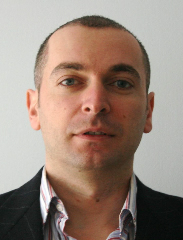 |
Alex Maisuradze comes from Georgia Republic and is currently a Master’s student at Columbia University’s Graduate School of Architecture, Planning and Preservation, Urban Planning program. He has a background in economics and is interested in urban and regional developments in post-socialist societies. His past work included research on how aggregate household electricity consumption could be used to measure the size of informal markets, in order to estimate hidden economies of developing countries. Currently, Alex’s thesis examines concerns of equity in redevelopment efforts and land use planning of historic old town of Tbilisi, capital of Georgia. He previously worked at USAID Caucasus Mission in Tbilisi and United Nation’s Mission to Haiti in Port-au-Prince. He holds an M.A. in Economics from Vanderbilt University and a B.A. from Tbilisi State University. |
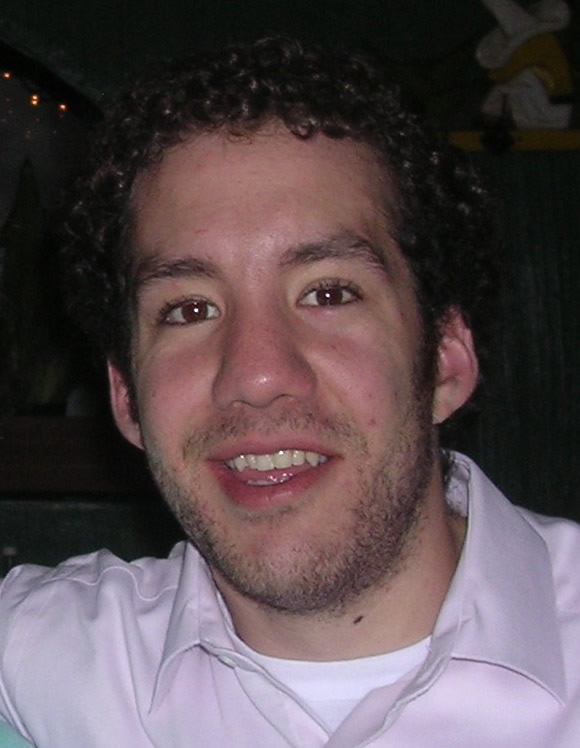 |
Joseph Matuk is currently an incoming senior in Columbia College. He is majoring in Urban Studies with a specialization in Political Science and a concentration in Comparative Ethnic Studies. Joseph is interested in the role state policy plays in informal economies, poverty solutions, community involvement in politics, and the law. His geographic areas of interest span China (Beijing), Latin America and New York. After interning with a law firm for two years, he wishes to pursue his interest in the legal world and state policies via his passion for urban related problems. He can be reached at [email protected] |
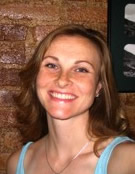 |
Anne Montgomery is a PhD student in Sociomedical Sciences at the Mailman School of Public Health at Columbia University. Her interests include urban health disparities, health systems and human resource capacity, diffusion of health innovations, programs to decrease drug resistance and promote adherence in developing countries, and illicit economic activity among youth and young adults in urban environments. Anne is an IGERT International Development and Globalization Fellow and an NIH fellow in Gender, Sexuality and Health. She has experience in design, implementation and evaluation of health promotion and community development programs in the U.S., Africa and Latin America. She has also founded health promotion programs at Brown University and Harvard College. Anne has an M.S. from the Harvard School of Public Health and a B.A. in Human Rights, Development, and Politics in Latin America from the University of California at Berkeley. |
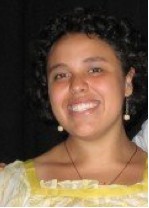 |
Victoria Ruiz is Junior in Columbia College. She is majoring in economics and urban studies with a specialization in architecture. She is very interested in the built environment’s relationship to social and economic change. Previous research includes travel behavior, land use, and demographics at MIT. She has worked on comparative labor market and social benefits research on Brazil, India, and South Africa for TCLab. She looks forward to further research experience with TCLab. Victoria is from Northern California and really enjoys being in New York. She is involved in the Student Coalition on Expansion and Gentrification and the Students Promoting Empowerment and Knowledge on campus. She can be reached at [email protected]. |
 |
Sonal Shah is enrolled in the Masters program in Urban Planning at Columbia University. She has a background in architecture and is interested in the relationship between policy, labour and urban space. Her work has been based in Mumbai and includes a one year research on Slum Rehabilitation Policy: Examining its construct and manifestation, A Case Study of Housing policies in the 1990s. She also worked with Urban Design Research Institute and Charles Correa Associates on the Redevelopment Plan for the Textile Mill Lands of Mumbai, which was exhibited as The Future of Our City at the KalaGhoda Festival in January 2005. She is currently the Vice-President of a student initiative, International Urban Planners in the Urban Planning Department at Columbia University. Her masters thesis looks at how grassroots mobilizations and street vendors in particular have responded to the urban restructuring in Mumbai in the 1990s. She was recently awarded a grant from the Earth Institute at Columbia University for her thesis research. |
Past Graduate Research Affiliates:
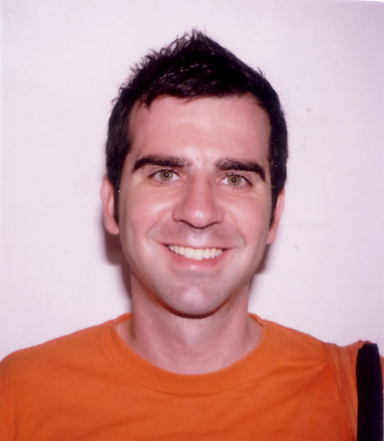 |
Gavin Browning is a Master’s student of Urban Planning at Columbia University’s Graduate School of Architecture, Planning and Preservation (GSAPP). His research interests include defensive and military uses of urban space, and the role of terrorism in producing city space. His thesis examines how Cold War federal plans to disperse industry and population from urban cores were realized in the planning of New York City, focusing on the recommendations set forth in the 1952 study Project East River. Previously, he attended The New School University and The University of Sussex in Brighton, England, and worked at the independent publishing houses Verso and The New Press. He is currently associate editing the book Engineered Transparency Glass in Architecture and Structural Engineering (Princeton Architectural Press, 2008) for Columbia University GSAPP Publications Department. |
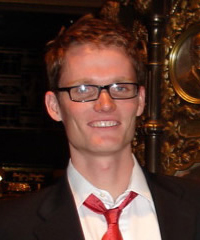 |
Matthew Crosby is a candidate for the Masters program in Urban Planning at Columbia University. His interests include the intersection of informal welfare behavior and diffusion of technologies whose design is to alleviate poverty directly or indirectly through job creation. In particular, he is interested in energy efficiency technologies at the household and renewable energy generation at the macro level as tools for improvements in human development/basic needs metrics. He worked past summer as a researcher at the U.S. Agency for International Development and as a field researcher in the Dominican Republic, where he collected data on human energy consumption behavior and health. He previously worked on immigrant, environmental, and education justice issues as a Labor Advocate Legal Assistant at La Raza Centro Legal, an immigrants rights group in San Francisco, on environmental protection campaigns for the Lone Star chapter of the Sierra Club, and as a middle school teacher in Crown Heights, Brooklyn. |
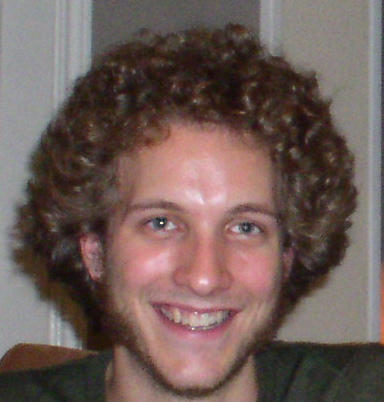 |
Kyle Daniels was born and raised in Providence, RI. He received a Bachelor of Arts in Economics from the University of Texas at Austin and is currently enrolled in the Master of Urban Planning program at Columbia University. He is interested in urban agriculture and the relationship between land use and transportation, especially in the context of compact, walkable, public transit oriented development patterns. He served as the chairperson for this year's NextGen Conference in Austin, Texas, an annual event which accompanies the Congress for the New Urbanism. He has worked as a radiology technician, at a French restaurant, a video game company, a small live theatre, on an organic farm, as an English teacher, a money manager, and most recently as an intern with New York City Transit. |
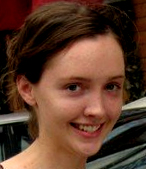 |
Therese Diede is currently working toward her M.S. in Urban Planning at Columbia. Her many interests include transportation planning and its multifaceted potential to increase mobility and access to employment opportunities, thereby breaking down barriers of socio-spatial inequality, as well as to transform the built environment and encourage sustainable settlement patterns. As a Sociology undergraduate at Tulane University in New Orleans, she joined a Latin American Studies graduate field course called Urban Livability, which met with city officials and local NGOs to investigate urban conditions in both São Paulo and Curitiba, Brazil. Upon graduating, Therese returned to São Paulo for three months to work in a favela teaching children crochet, knitting, and other crafts. |
 |
Myriam Figueroa is a Masters of Science student in Urban Planning at Columbia. She is interested in the influence of global trends on local economies, and the organizationof energy markets for products such as electricity and biofuels. She has been an intern with environmental organizations such as The Nature Conservancy (Latin America Division), and The National Wildlife Federation (Water Resources program). She was also an ECO fellow at the US EPA’s Brownfiled’s Redevelopment Program in New York City. Last summer she was an intern with the City's Dept. of Small Business Services (SBS) where she evaluated a job training initiative for people with limited English skills, and helped assess possible links between workforce and business programs. She has a B.A. in Anthropology and Latin American Studies from Cornell University. Myriam’s thesis examines the role of urban governance on local biofuel markets in New York City and Philadelphia. This year she was awarded a 2007 American Planning Association Fellowship. |

